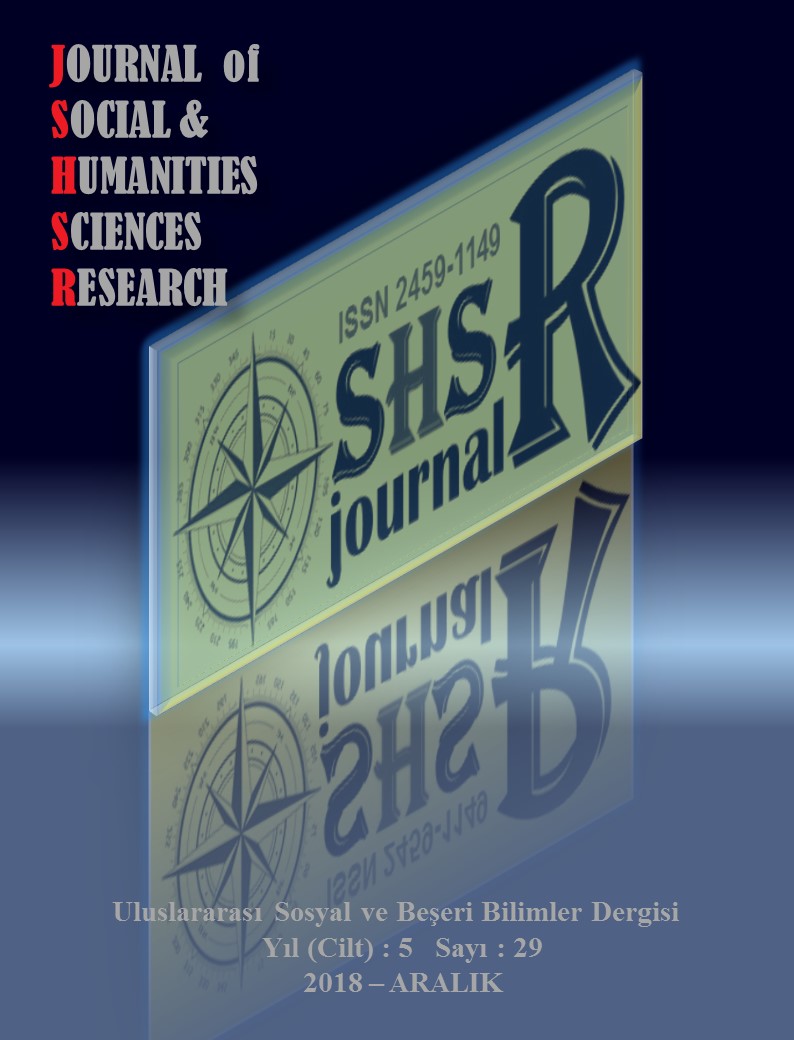BOURDİEU’NUN KAVRAMLARI DOĞRULTUSUNDA İLİŞKİSEL OLARAK FİZİKSEL ENGELLİLİĞİN KÜLTÜREL İNŞASI: KONAK ÖRNEĞİ
DOI:
https://doi.org/10.26450/jshsr.809Anahtar Kelimeler:
Fiziksel Engellilik, Kültürel İnşa, Nitel AraştırmaÖzet
Çalışmanın amacı, fiziksel engelliliğin kültürel inşasının sosyolojik eksende ne şekilde ve nasıl olduğunu Konak örneği üzerinden analiz etmektir. Çalışma, fiziksel engellilik olgusunun toplumsal ve kültürel bağlam içinde inşa edilişini, fiziksel engellilerin gözünden derinlemesine bir şekilde anlama amacı taşıdığı için nitel araştırma yönteminin kullanımı uygun görülmüştür. Fiziksel engelliliğin inşasını sosyolojik olarak derinlemesine anlamada yüzyüze etkileşim ve iletişimin aktif olduğu ve yeni bilgilerin keşfine dayanan yapılandırılmamış görüşme kullanılmıştır. Çalışmanın evrenini İzmir ilinin merkez ilçesi Konak, örneklemini ise Konak ilçesine bağlı engelli derneklerine (Türkiye Sakatlar Derneği, Bedensel Engelliler Yaşam Derneği ve Yeni Oluşum Bedensel Engelliler Derneği) üye olan 9 kadın ve 10 erkek fiziksel engelli birey oluşturmaktadır. Çalışmada, birbiriyle bağlantılı insanlar ya da örgütlenmeler ağıyla her bir kişinin ya da birimin bir diğeriyle doğrudan ve dolaylı bir bağlantıyla bağlı olması durumunda ağdaki diğer kişilerin tümünü doğrudan tanıdığı, onlarla etkileşime girdiği ya da onlardan etkilendiği anlamına gelen kartopu örneklem tekniğinden yararlanılmıştır. Görüşmeler, katılımcıların izni alındıktan sonra ses kayıt cihazı kullanılarak tamamlanmıştır. Görüşmelerden elde edilen veriler, betimsel analiz tekniği ile çözümlenerek temalar oluşturulmuştur. Çalışmanın bulguları, ‘Engellilik Kimliği’, ‘Kültürel Eşitsizlik’, ‘Simgesel İktidar’, ‘Engellenmiş Kent’ olarak kategorize edilen dört tema çerçevesinde anlamlandırılmakta, yorumlanmakta ve değerlendirilmektedir.
İndir
Yayınlanmış
Nasıl Atıf Yapılır
Sayı
Bölüm
Lisans
Telif Hakkı (c) 2018 International JOURNAL OF SOCIAL HUMANITIES SCIENCES RESEARCH

Bu çalışma Creative Commons Attribution 4.0 International License ile lisanslanmıştır.


